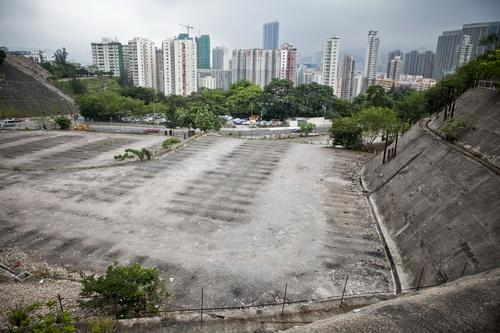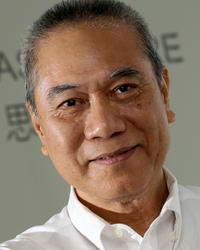HONG KONG - Lau Nai-keung believes Hong Kong's economy has lost its way since the handover from Britain 13 years ago this week.

The junction of Fat Kwong St and Chung Hau St (auctioned as Kowloon Inland Lot No.11175) covers some 16,151 square meters of land in Ho Man Tin, Hong Kong. The SAR government sold the site for HK$10.9 billion, beating the HK$8.41 billion median estimate of seven analysts surveyed by Bloomberg. [THOMAS LEE / BLOOMBERG]
The leading economic commentator says the special administrative region needs to find a proper role in the global economy.
"We have sort of lost our direction now and so has the government so we don't know where to go or what to do," he said.

LAU NAI-KEUNG, HONG KONG ECONOMIC COMMENTATOR
The 62-year-old was speaking in the Wan Chai offices of the Hong Kong Ideas Centre, a think tank for which he is an adviser.
Although he is known as a writer and radio talkshow host, he was for 20 years a member of the Chinese People's Political Consultative Conference (CPPCC).
Lau blames the Hong Kong Special Administrative Region government led by Chief Executive Donald Tsang for allowing the economy to be hijacked by property tycoons.
He insists the SAR's leaders are just standing by as moguls who own the huge shopping malls and other commercial properties exert huge influence.
He is particularly concerned smaller entrepreneurs, once the lifeblood of the local economy, are being squeezed out.
"The property guys are now into everything and are taking control. Even the bus companies and the tramways are owned by the tycoons," he said.
He said their activities are destroying Hong Kong's status as a low-tax economy since they are effectively imposing higher taxes on everyone else by charging high rents and prices.
"I would say we are now paying a very high rate of taxation but we pay it to these tycoons who take a very big share of it and then hand some of it over to the government," he said.
Lau said the government has misunderstood the way the economy was managed in the past and allowed personal greed to takeover.
He said the British might have allowed a laissez-faire economy to develop but they always intervened to moderate the excesses of a free market.
"The colonial government had this kind of attitude of a little bit of tinkering here and there. They had been tinkering ever since 1842 (when Britain took control of Hong Kong)," he said laughing.
"The present chief executive is on record as saying we don't have to position Hong Kong because the concept of positioning is that of a planned economy and we are a market economy. This, however, has just led to excess."
Lau, who remains a member of the basic law committee of the National People's Congress Standing Committee and who is a visiting professor at Jinan University and Beijing Business Management College, believes Hong Kong is over-dependent on services, particularly its financial sector.
"Ninety-three per cent of the economy is in services, which makes it very unusual in terms of most economies. We are always compared with Singapore but it has 28 per cent of its GDP (gross domestic product) related to manufacturing," he said.


Lau said Hong Kong's financial sector, although currently weathering the economic crisis well, always remains vulnerable to external shocks.
"You can't put all your eggs in one basket, particularly if that basket is one you can't control," he said.
Lau is also concerned about the huge disparities in wealth emerging in Hong Kong, which he said creates a lot of "social resentment".
He rejects the Hong Kong government's notion that wealth from those who work in the SAR's booming financial sector "trickles down" through the economy.
"Perhaps it trickles down as far as Lan Kwai Fong (the Hong Kong's trendy bar area frequented by high rolling financial workers)," he said chuckling.
He said one of the problems of Hong Kong now was there were few well paid jobs outside financial services.
"If you look in the recruitment section of the South China Morning Post or go on monster.com, 70 percent of the jobs available are in selling, often low grade commission-based jobs," he said.
He said it was bad news for Hong Kong's graduates who now had difficulty finding good, well-paid jobs.
"Graduates taking these jobs are not getting a good deal. That is why they are very frustrated," he said.
Lau insists Hong Kong is still almost guaranteed a wealthy future because of its proximity to booming China.
"The worst case scenario is it becomes like Vancouver, a nice place for wealthy people to live with a financial center strong in asset management," he said.
"This would be a missed opportunity because it could become a genuine world city, where companies have to have their international and regional headquarters and where east meets west," he said.





